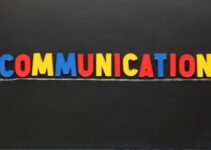Levels of Listening
Based on the effectiveness of the listening process, three levels of listening have been identified. Level 1 is that of Non-listening and is the least desirable, followed by Level 2 which is Passive Listening. Level 3 is Active Listening, which is most desirable. Though we listen at all the three levels during the course of the day depending on our interest and situation, it is beneficial to move to Level 3 for maximum listening effectiveness. Good managers and leaders spend more time listening at Level 3.
Level 1 – Non-Listening: Here, the listener may appear to be listening but actually he is more occupied with his own thoughts. He is minimally aware of the speaker speaking. He is likely to appear detached and will be unresponsive and passive.
Level 2 – Passive Listening: Passive listening is more about hearing than actually listening. The listener superficially hears the words but does not understand in depth what is being said. He concentrates on the word content of the message rather than the feelings and emotions associated with the message. He does not get much involved in the communication activity, and rather than contributing equally to the conversational exchange, he is merely spoken to.
Level 3 – Active Listening: This is the most desirable form of listening wherein the active listener gives full attention to what is being said. The listener concentrates on what is being said and also motivates the speaker to speak, making it easier for the speaker to deliver the message.
An active listener not only comprehends the message better but is also in a better position to remember and recall the message. He not only pays attention to the word content but also concentrates on the emotional and non-verbal aspect of the message. In active listening, the listener is directly involved in the conversation. He provides feedback to the speaker and voices his opinions and arguments.
Types of Listening
Discriminative Listening
This is the most basic type of listening. It involves identifying the difference between various sounds. It also enables one to differentiate between familiar and unfamiliar language. The subtleties of accent and pronunciation typical of a language can be identified by this kind of listening.
Comprehension Listening
This type of listening involves something more than just differentiating between various sounds. It involves attaching meaning to what is being listened to, that is the message is comprehended. It may also include comprehending the non-verbal messages being conveyed intentionally or unintentionally by the speaker.
Evaluative Listening
This is also called as critical listening. This involves not only comprehending the message but also evaluating and analyzing the message being received in light of one’s own background. It involves judging the acceptability of what is said depending on how logical one finds it to be.
Attentive Listening
It involves paying attention to the words that are being spoken rather than understanding the head and the heart of the person speaking. It involves making a conscious effort to listen attentively and decode the message. The concentration is on the verbal part of the message rather than the non-verbal aspect.
Pretence Listening
This involves more hearing than listening. It means pretending through facial expressions that one is listening to the communicated message when actually one is not.
Selective Listening
Listening is done only partly or selectively. It involves selecting the desired part of the message and ignoring the undesired part of the message. The attention of the listener is not focused and the listener keeps switching off and on.
Intuitive Listening
It is a higher form of listening. It means listening through the intuitive mind by silencing the other forms of internal dialogues going on simultaneously.






